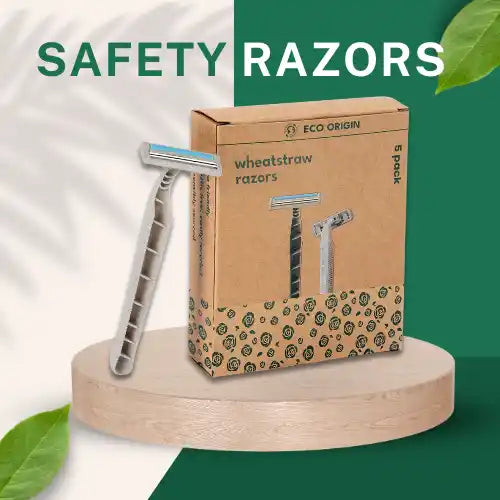Disposable vapes banned in UK to protect children's health
Prime Minister Rishi Sunak Raises Concerns About Disposable vapes Youth Vaping to Become “Endemic” and Plans on Banning Particular Flavours.
The rapid rise of disposable vapes has captured the attention of both health experts and concerned citizens alike. These small, inconspicuous devices have become increasingly popular, particularly among the youth.
However, with their surge in popularity comes a growing body of evidence pointing towards the alarming health risks associated with their usage. The Prime Minister of the UK, Mr. Rishi Sunak raises concerns over stop smoking and vaping to become “endemic” amongst youth stating that;
“As any parent or teacher knows, one of the most worrying trends at the moment is the rise in vaping among children and so we must act before it becomes endemic” - Financial Times
Adding to the facts put forward by the prime minister, we will further investigate the health hazards posed by disposable vapes for the younger generation and argue why a ban on these devices is not just prudent but imperative.
The Youthful Allure
Disposable vapes, often marketed with enticing flavors and sleek designs, have carved a niche in the market by targeting the younger demographic. With appealing flavors ranging from mango to bubblegum, these devices seem quite harmless and alluring to the youth. Unfortunately, the appeal masks the potential dangers that lie within the seemingly innocent puffs of flavored vapor.
Nicotine Addiction
One of the primary concerns associated with disposable vapes is the high nicotine content found in many of these products. Nicotine, a highly addictive substance, poses a severe risk of addiction, especially in developing brains. An adolescent’s brain is particularly susceptible to the addictive properties of nicotine, and the ease with which disposable vapes can be obtained only exacerbates the problem.
Long-Term Health Consequences
While the immediate risks of disposable vapes are concerning, the long-term health consequences are even more alarming. Research suggests that prolonged exposure to the chemicals found in e-cigarette vapor may lead to respiratory issues, cardiovascular problems, and a compromised immune system. The youth, in particular, are vulnerable to these long-term health risks, as their bodies are still in the critical stages of development.
Unregulated Ingredients
The lack of stringent regulations surrounding the manufacturing and composition of disposable vapes is a cause for serious concern. Many of these devices contain undisclosed and potentially harmful ingredients. The absence of standardised testing and labelling puts users, especially the youth, at risk of exposure to unknown and hazardous substances.
Gateway to Traditional Smoking
Contrary to claims by some that e-cigarettes serve as a harm reduction tool for traditional smokers, there is evidence to suggest that disposable vapes can serve as a gateway to conventional tobacco use among the youth. The ease with which young individuals can access and experiment with disposable vapes may normalize the act of smoking and lead them down a perilous path towards more harmful tobacco products.
The Need for Stricter Legislation
Given the escalating health risks associated with disposable vapes, the call for stringent legislation and an outright ban on these devices is growing louder. Countries like India and Brazil have already taken steps towards banning e-cigarettes, recognising the urgency to protect the health of their youth. The United States and other nations must follow suit, implementing policies that restrict the availability and marketing of disposable vapes.
Several governments around the world have recognized the urgency to protect their youth from the potential harms of these devices. Let’s look at some examples taken as government-level initiatives towards banning of disposable vapes.
1. India's Proactive Ban
India took a decisive step in September 2019 by implementing a comprehensive ban on e-cigarettes, including disposable vapes. The prohibition was based on the potential health risks posed by these products, especially to the youth. The Indian government's move highlighted the necessity for swift action in the face of an emerging public health crisis.
2. Brazil's Strict Stance
In 2020, Brazil also joined the ranks of nations taking a firm stance against disposable vapes. The National Health Surveillance Agency (ANVISA) prohibited the sale and distribution of electronic cigarettes, recognizing the need to safeguard the health of its citizens, particularly the younger demographic. Brazil's decision showcased a commitment to proactive public health measures.
3. European Union's Harmonised Approach
The European Union (EU) has been actively working towards implementing a harmonized regulatory framework for e-cigarettes, including disposable vapes, across its member states. While not a blanket ban, this approach seeks to standardize the regulation of these products, ensuring that they meet stringent safety and quality standards. The EU's collaborative effort reflects a commitment to protecting the health of its diverse population. Rishi Sunak’s move towards banning disposable vapes in the UK is a major step.
4. Singapore's Strict Regulations
Singapore, known for its stringent regulatory policies, has also taken steps to curb the use of disposable vapes. The country has implemented measures to restrict the sale and distribution of such products, emphasizing the potential risks they pose to public health. Singapore's approach underscores the importance of preventive action to mitigate the impact of emerging health challenges.
5. Australia's Varying Regulations
Australia has adopted a nuanced approach to regulating disposable vapes, with different states implementing varying levels of restrictions. While some states have outright banned the sale of e-cigarettes and vaping products, others have imposed age restrictions and advertising limitations. Australia's diverse regulatory landscape reflects ongoing efforts to strike a balance between public health protection and individual freedoms.
6. The United States: A Patchwork of Policies
In the United States, the regulatory response to disposable vapes has been somewhat fragmented. While the federal government has taken steps to address youth vaping, including flavor bans, individual states have implemented varying levels of restrictions. The need for a cohesive and comprehensive federal approach remains a subject of ongoing debate.
A Proactive Approach is needed
As the evidence surrounding the dangers of these devices continues to mount, it is essential for nations to collaborate, share best practices, and adopt unified approaches to protect the health and well-being of their citizens, especially the vulnerable youth.
A proactive approach, involving the implementation of strict regulations and a comprehensive ban on disposable vapes, is crucial to safeguard the health and the eco-logical havoc it is causing the environment











